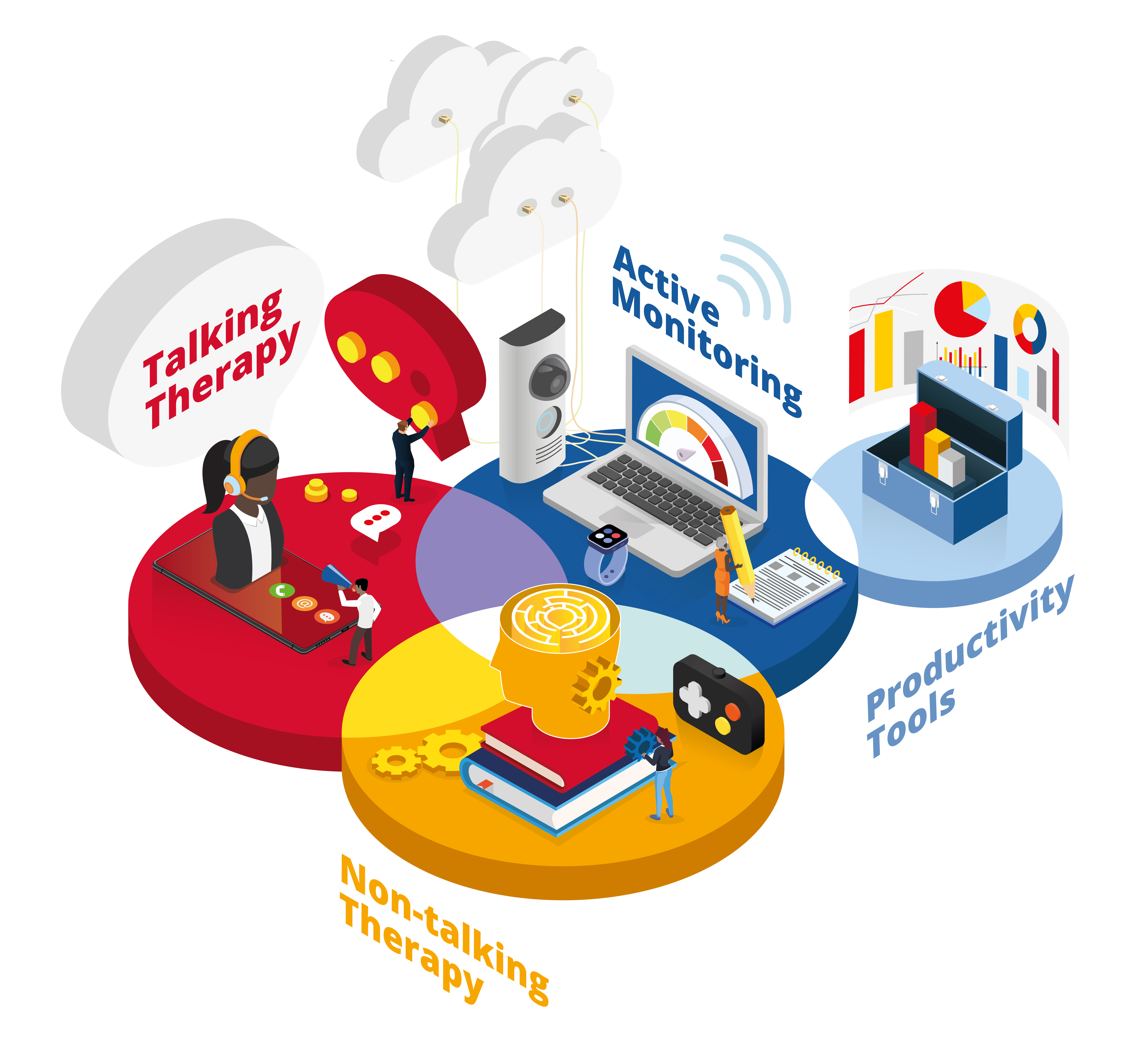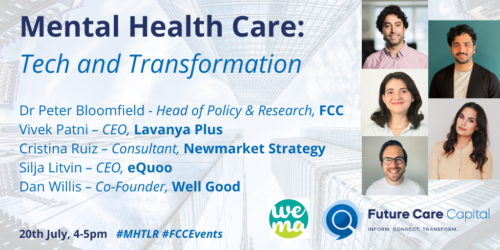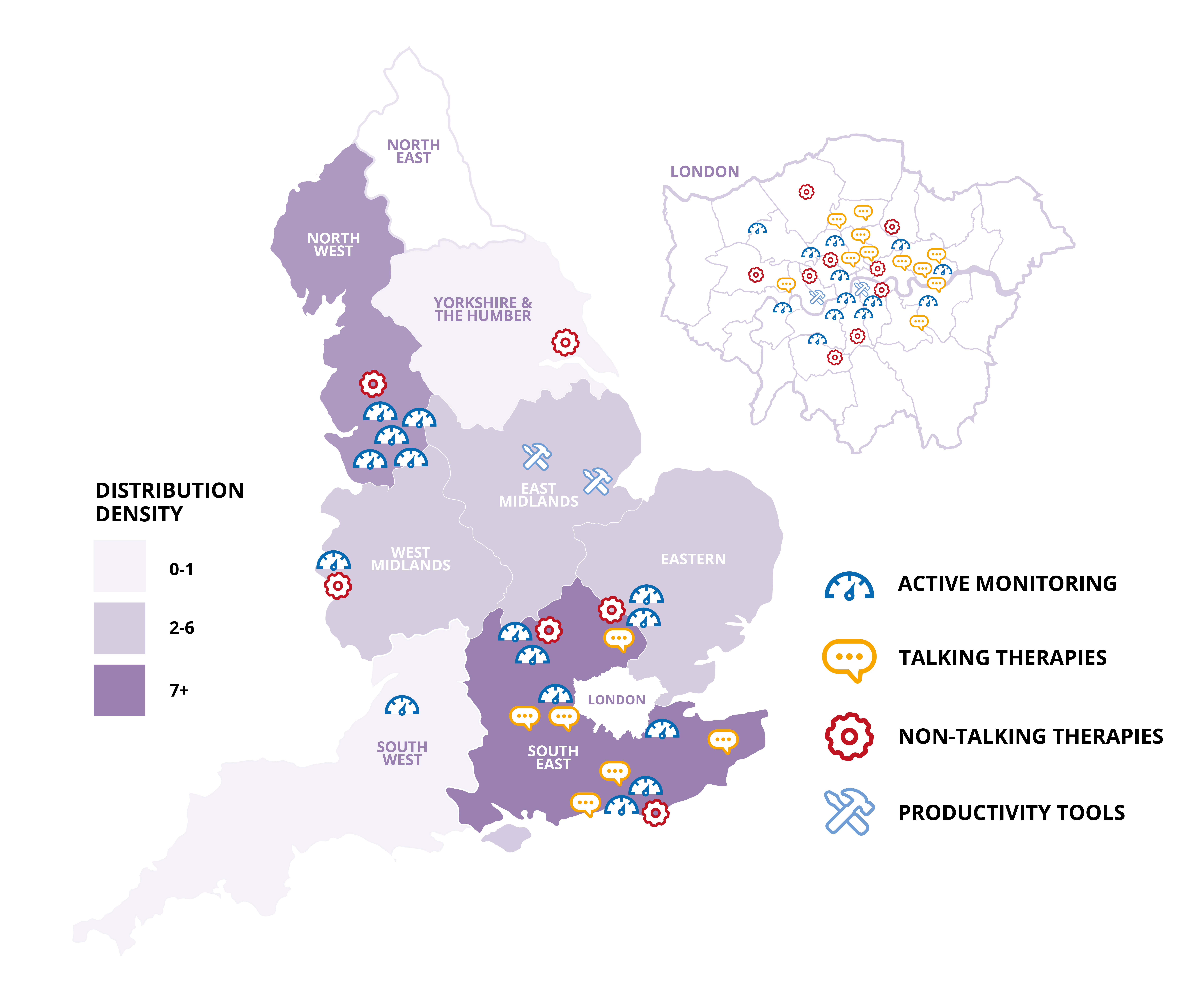
latest
Mind the gaps
Greater government investment needed for digitisation of mental healthcare

"In our latest Future Care Capital report, The Mental Health Tech Landscape Review, we urge the government to invest specifically in the digitisation of mental healthcare across England."
The Health and Social Care Secretary, Sajid Javid, has cited pressure created by the pandemic to highlight the need and priority for a new plan on mental health – and to make further investment in this area.
This is welcome on top of the £500m (non-recurrent) funding the government announced last year, plus the additional £38million for NHS IAPT services which offer treatment for conditions such as anxiety, depression and PTSD.
The challenges of delivering mental health services are well-known. However, more work is required to demonstrate the opportunities that the development of med tech can bring to mental health (in terms of patients and workforce).
In our latest Future Care Capital report, The Mental Health Tech Landscape Review, we urge the government to invest specifically in the digitisation of mental healthcare across England.
Mental health professionals have a done a great job for years and worked tirelessly during Covid but demand for services is ever increasing and the pandemic has made things harder. There are an estimated 1.6 million people in contact with mental healthcare services, but it is no easy task to calculate the total demand.
The pandemic has also accelerated the pace of change for digitisation across the NHS. Our FCC report shows that there is untapped potential for the development of a wider range of different technologies which could support NHS mental health workers and others, whilst also improving services for the benefit of patients.
There is still a relatively small sector of niche companies developing solutions for mental health care compared to other sectors. Our research has identified the main technologies as apps, platforms and IoT (Internet of Things) – with artificial intelligence (AI), virtual reality (VR), and gamification approaches also prominent in the sample.
So, is mental health tech the solution to meeting rising demand whilst continually improving services?
Dr Peter Bloomfield, FCC’s Head of Policy and Research and author of the report, argues that more support has been needed for mental health services for many years in the UK, but the pathways for accessing services are “convoluted, waiting lists are extensive, and outcomes are poor over the long term.” He suggests “a complementary approach, including face-to-face care and digital support will be useful.” He concludes that coming up with new ideas to maintain health “in a preventative way” will be as essential as providing tools for acute care” and that technology has a significant role to play.
Also, the message from solutions developers and providers is that new tech developments can be introduced using existing technologies, as well as through brand new, futuristic kit.
From a policy perspective, it’s certain the Health and Care Bill will have an impact on future mental health care provision. But with so many competing demands we must ensure mental healthcare does not fall through the gaps. If we are to achieve true parity between mental and physical health services, we must include access to relevant new technology in this ambition.
The government can play its part by encouraging and investing directly in the digitisation of mental healthcare services.
The opportunities around mental health tech and our FCC report will be discussed at our upcoming free webinar, Mental Health Care: Technology and Transformation, on Tuesday 20th July.
Register in one simple step, here.


